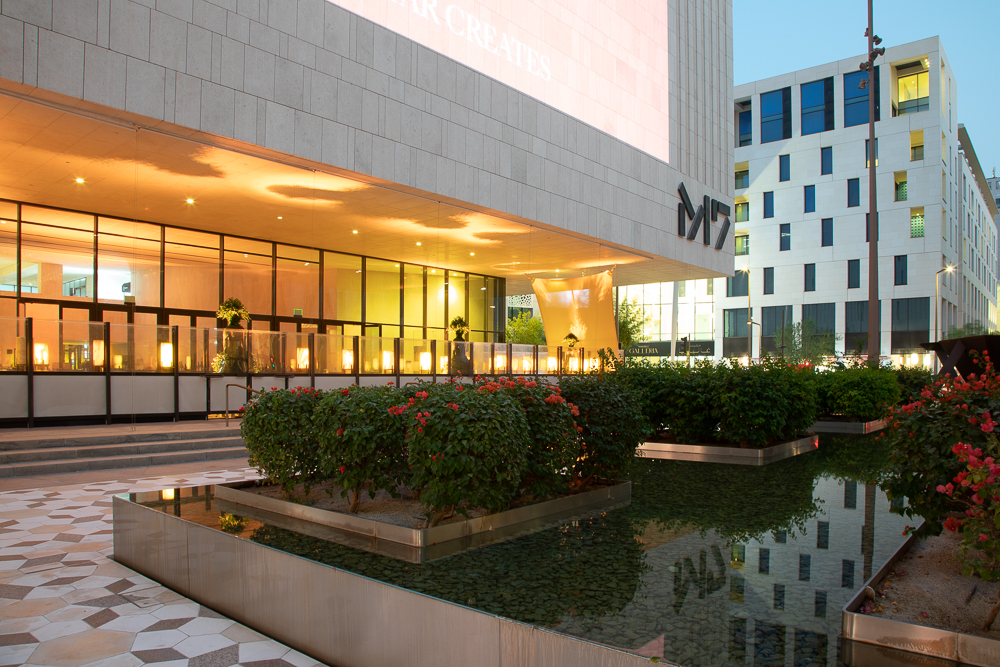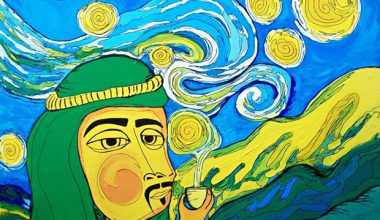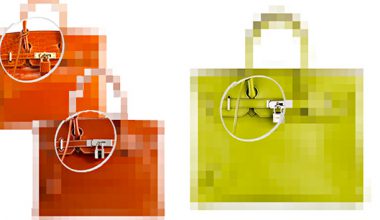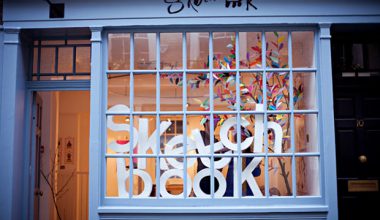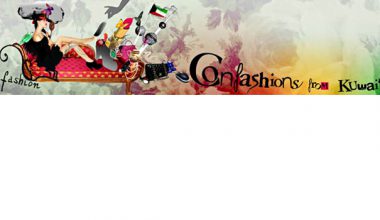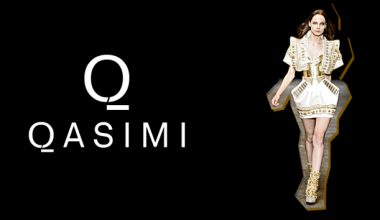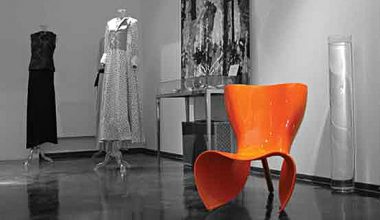M7, Qatar’s creative startup hub dedicated to fashion, design and technology, was established by Qatar Museums under the leadership of its Chairperson, Her Excellency Sheikha Al Mayassa bint Hamad bin Khalifa Al Thani. The creative hub serves as a catalyst for creativity in people of all ages and backgrounds, hosting a range of Resident partners that contribute to the creative ecosystem, as well as exhibitions, educational and skill-based programmes, and public discussions.
M7's mission is to advance the careers of Qataris and its residents in the creative industries, with a particular focus on fashion and design, and to train aspiring entrepreneurs in creative fields. Through its offerings, M7 sparks creativity and helps to connect Qatar's creative innovators with influential creatives from around the world. The facility itself is located in the heart of Msheireb Downtown Doha, a mixed-use development that is reviving the city's historic core as a sustainable live-work neighborhood. As one of several initiatives developed and supported by Qatar Museums to build a strong and sustainable cultural infrastructure in Qatar, M7 is poised to play a significant role in advancing the country's creative landscape.
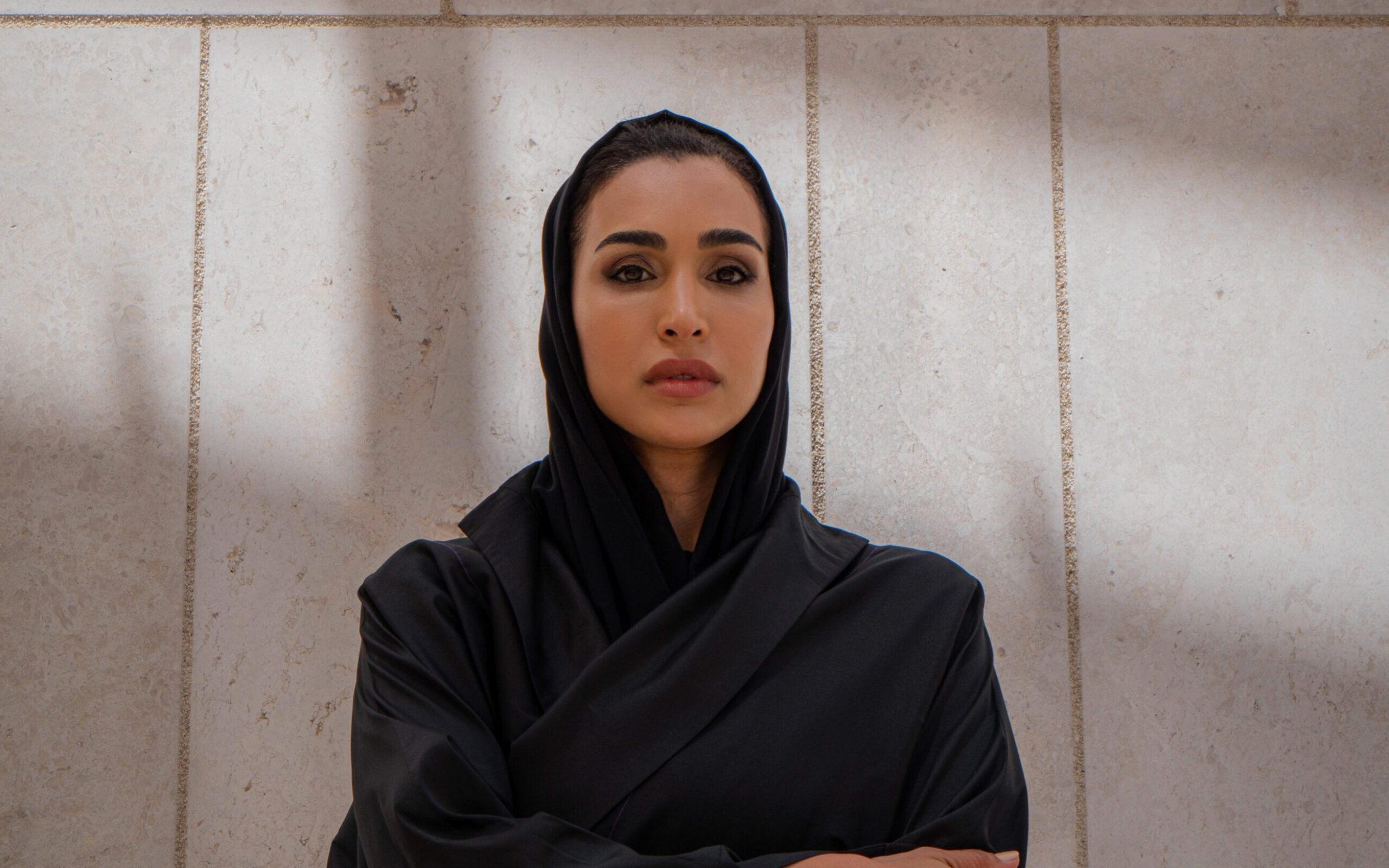
We spoke to M7’s director, Maha Ghanim Al Sulaiti, about the impact of M7 on local creatives, the importance of knowledge and training, and her reflections on the current creative sector in Qatar.
Khaleejesque Magazine: How has M7 helped develop the creative sector in Doha?
Maha Al Sulaiti: The creative sector in Doha is quite young and as part of her excellency’s vision, Sheikha Al Mayyassa bint Hamad, she wanted to support the creative economy as a whole. And there was a gap or a need to support the designers in specific, but the creative industries in general, to kind of create a platform for them and bring different partners together to cultivate a more conducive environment for them. So our role really is to try to connect the dots within the ecosystem. We have different partners, what we call resident partners, so nothing we do is in silo. Everything is in partnership with different institutions ever since we officially reopened in 2021. So we have managed to do quite a bit within two years, and it really is because we have a lot of talent, but also because we have a lot of resources that are already there, and at M7 we bring them all together under one roof.
K.M.: From your experience as director of M7, what do you believe are the most crucial elements needed to build successful creative entrepreneurs in Qatar?
M.A.: I would say it’s a combination of a lot of different things. You want an environment, you want the support, the policies that are in place that make it easier for designers or the creative industries to run their businesses and to understand their specific needs. They operate a little bit differently to most businesses and their needs are different and really to kind of tailor that to what they need. We call it our designer journey.
So within M7 it's like a mini ecosystem. And we have an incubation program with our partners that really supports creatives in terms of giving them the tools and the mentorship necessary for the business side. A lot of the creatives are very creative and talented, but they don't know how to run businesses. It's a completely different monster basically. So giving them these tools is very important. Business is business at the end of the day, so the question is how do we keep them sustainable in that sense.
We have a lot of programs where we try to showcase their work as well and get them to work outside their boundaries. For example, we have our Zwara program, which is in line with our exhibitions. We bring these blockbuster exhibitions to Doha and we really want to make sure that designers can go and really dig deeper into these exhibitions. And so this program gets them to go into this world and seek inspiration, but also create something outside the box. With our latest Zwara program, which is based on the Valentino Forever exhibition, the prompt was to collaborate. So a designer has to collaborate with someone else to create a piece and that is really important because designers tend to work in silos. So one of our roles is to encourage them to really expand, expand their business and to seek other expertise as well.
We also offer creatives a space to work through Workington, which is a co-working space dedicated to creative entrepreneurs. Offering them a physical office that they may not be able to afford outside of M7 and ultimately just bringing them together under one roof creates a lot of collaborations and work opportunities that come out of that.
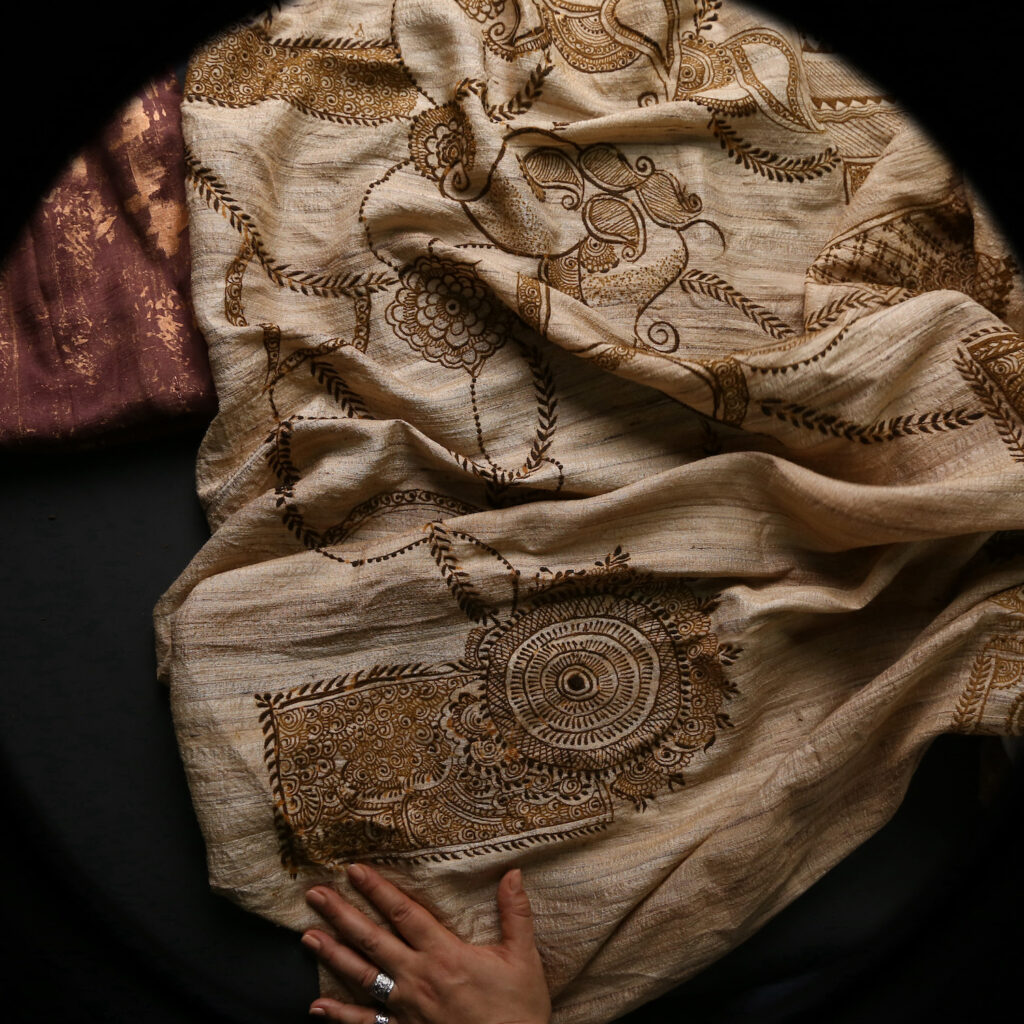
K.M.: In your opinion, which creative sectors are the most promising in Qatar? And what would you attribute that to?
M.A.: Looking at the creative industries from our line of work, we have the low hanging fruit, which is fashion. We have a large number of fashion designers in Qatar. But we also see growth in other areas such as design, specifically industrial design and product design. It's really coming up and with Studio7, which is our concept store, we’re starting to see these products being displayed and I think there's huge potential for that. The link with the local crafts as well is really something very unique. So a lot of the designers now are kind of going back and seeing these old products that have been created and trying to bring them to today's world. The last couple years we've been very fashion focused, but at the end of this year we're going to be focusing on interior design a bit more. One of our partners, FROMM, is a furniture and interior design incubator, and they have just launched their second collection in Milan Design Week. So we're seeing that growth as well in other industries.
K.M.: Training, incubation, and development are critical areas in M7 — what does the process look like when building these different programs?
M.A.: Everything we do is really tailor made or it's a response to the needs of the creative industries. So, we envision, like internally what we have is kind of what I described the designers journey. So even before M7, we have other entities that work in this area as well. So we have Liwan, which is a design residency. It's based on membership, so you can go there, create, learn experiments, whatever it is, and then you can join M7’s incubation program through scale. We have our own workshops and master classes are going to launch very soon. And then of course, our more experimental opportunities like Zwara, so everything is really based on the needs of the industry. I would say when it comes to training, incubation opportunities, even commercial, obviously commercial opportunities are very important. Our focus is really on entrepreneurship.
K.M.: What do you most look forward to when it comes to working with creatives at M7?
M.A.: I've always been intrigued by this industry. My background is in business and I worked in the financial world, and somehow I slowly came into the sector and I bridged the gap. I went to Central Saint Martin's where I studied innovation management and it's really just that, marrying design and other industries. This is really what I love to see in M7 and it's a challenge, but when I come and see the amazing creations, the opportunities, and what we can provide, and where they go after that is really amazing to see.
I can use one of our designers as an example. Yasmin Mansour joined our first Zwara program, even before we opened M7, and she developed this technique for one of her garments. She later used that technique to create her fashion collections, and she became a finalist in the Fashion Trust Arabia Award (FTA). She then partnered with Bouthayna Al-Muftah and the FTA and created this amazing collection. She's on the covers of magazines, like Vogue, and I can see her dressing celebrities in any runway around the world. To see that quality of work and how she grew very quickly is really what keeps me going at M7.
K.M.: Are there any other success stories from M7 you are proud of?
M.A.: I mean, honestly, we have a lot of success stories given the short period of time we’ve been active. It's really encouraging and we know the next generation is going to be even better. We had one participant in our Dior Zwara program who was in her 50s, and she wasn’t a designer and was unemployed. She was selected to be part of the program and our team worked with her to create a piece that is inspired by henna. Our prompt was to use local heritage in their pieces that are also inspired by Dior. She developed a technique where she does permanent henna on fabric, and I don't think anyone else has done that. And she then became a designer after all of that, and HH Sheikha Moza bint Nasser wore her designs and that obviously helped her a lot business wise. She also spoke at TED Talks recently and she's one of our amazing success stories.
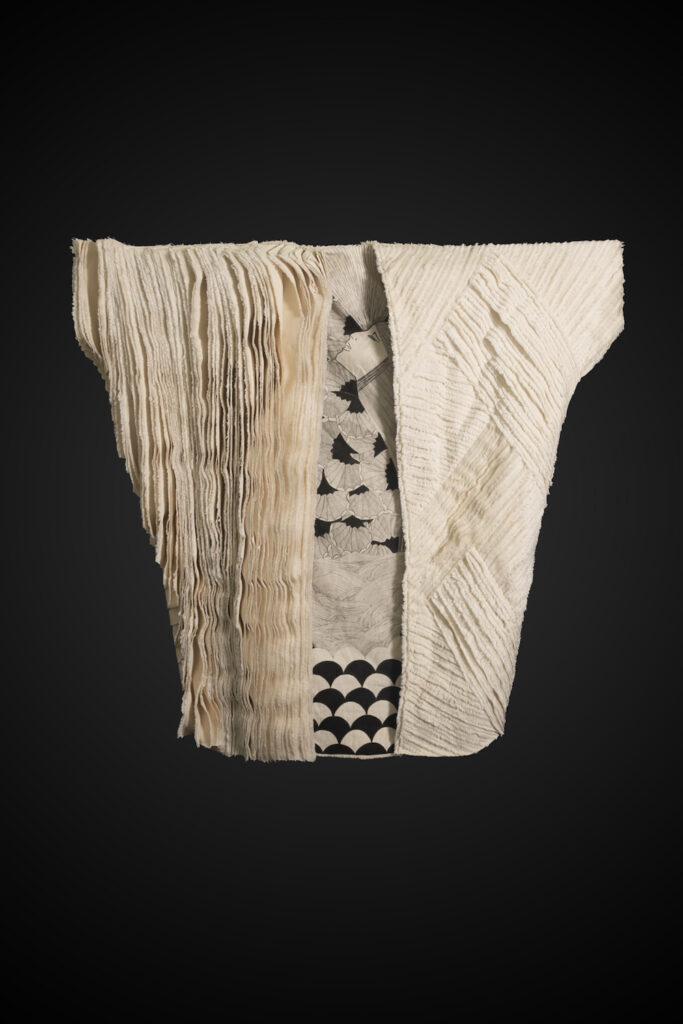
K.M.: What advice do you have for aspiring creative freelancers or entrepreneurs thinking of starting a career in the creative industries?
M.A.: I think the most important thing is that you really need that hunger and drive. Competition is high and sometimes we tend to live in our own bubble in this region. You create your own little collection and sell it to your friends and family around you, and you're somewhat satisfied by that and you don't see the potential of where that can go. I think it's really important to always think and aim really high. Your audience can be international. Now you can sell online, you can showcase anywhere, and your competition is international. So every time you work, you need to think about those aspects, where you want to go in the future and really raise the bar. I think if you're hungry for it, you're patient, and you work hard, you will see the results. What's also important for us is authenticity and keeping your identity; what differentiates us from other brands around the world, there has to be some kind of identity that only you can present.
K.M.: What are the future plans of M7?
M.A.: There are a lot of plans and we're just at the beginning of our journey. The potential is really high. We're very blessed to be under the patronage of HE Sheikha Al-Mayassa, who has tremendous other projects as well. She is very involved in everything that we do and is very hands on. She links everything that we do to other other projects as well. The network is huge and we have so many opportunities with M7.
K.M.: What are you most looking forward to achieving at M7?
M.A.: Creating a thriving community, to be honest. Our role is that we are of service to this community. I want to be able to, at some point, leave this place and see it thriving. To see the community really just keep going, to keep on giving and creating. I think that's the ultimate goal.
For more information on M7, visit qm.org.qa/en/about-us/m7 and instagram.com/m7.qatar

